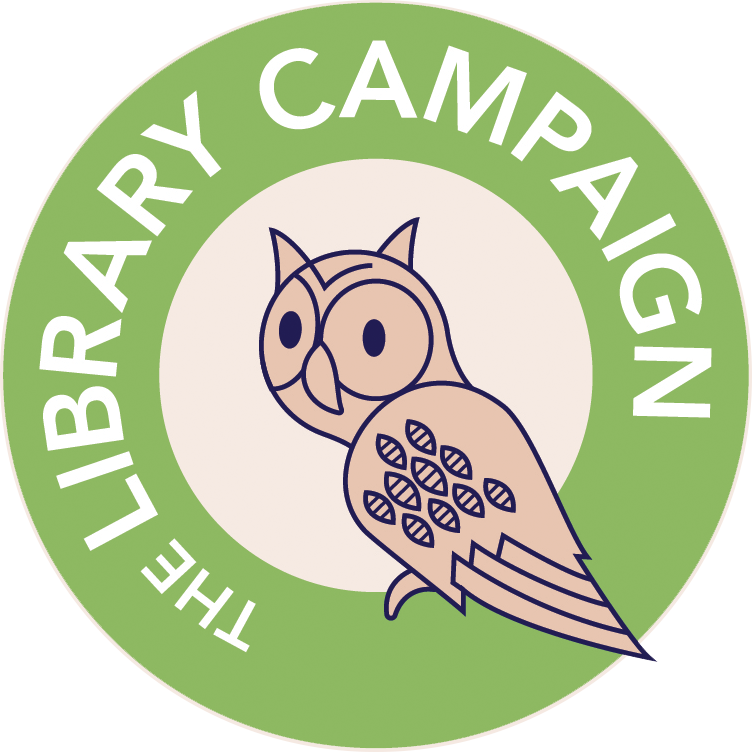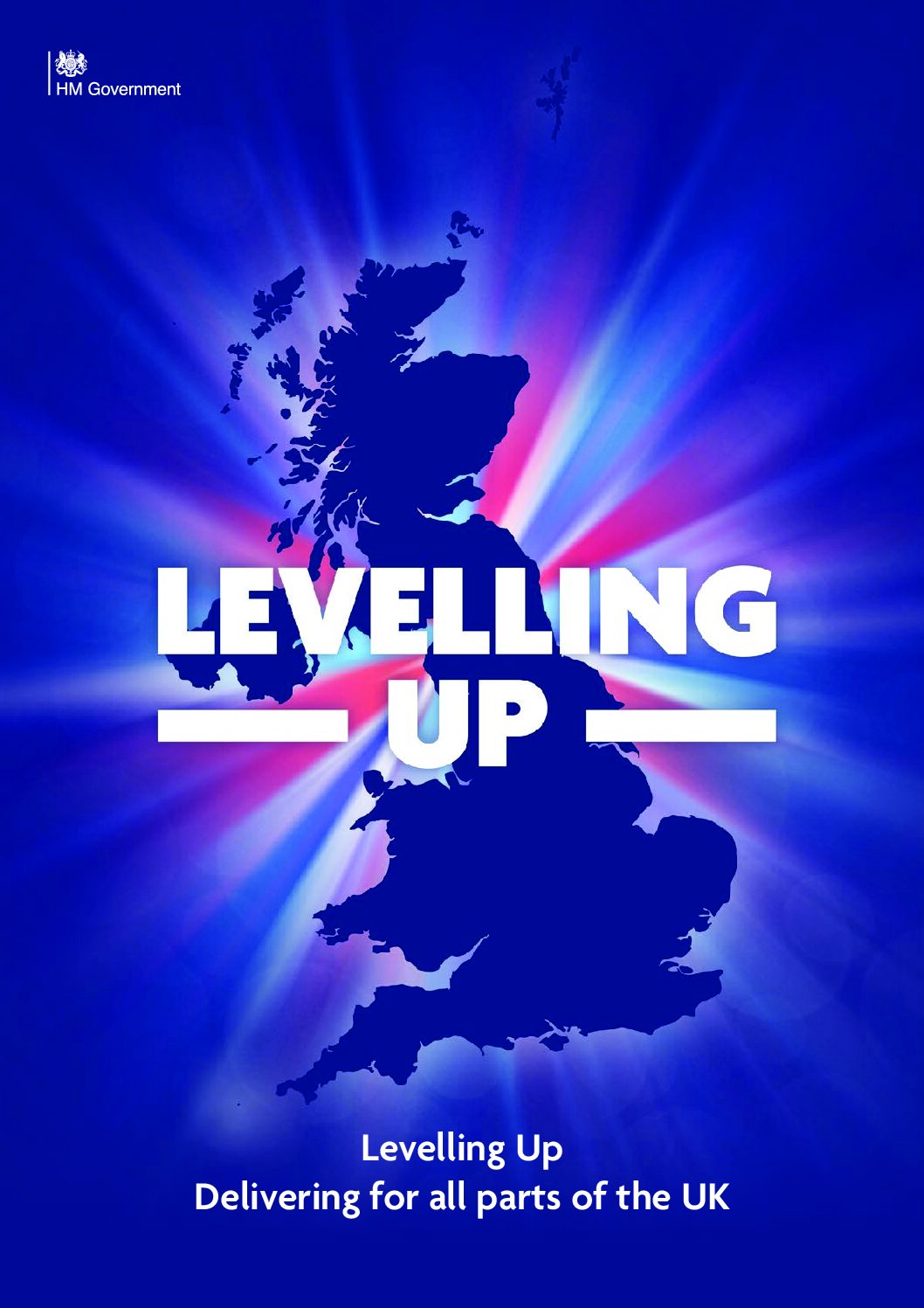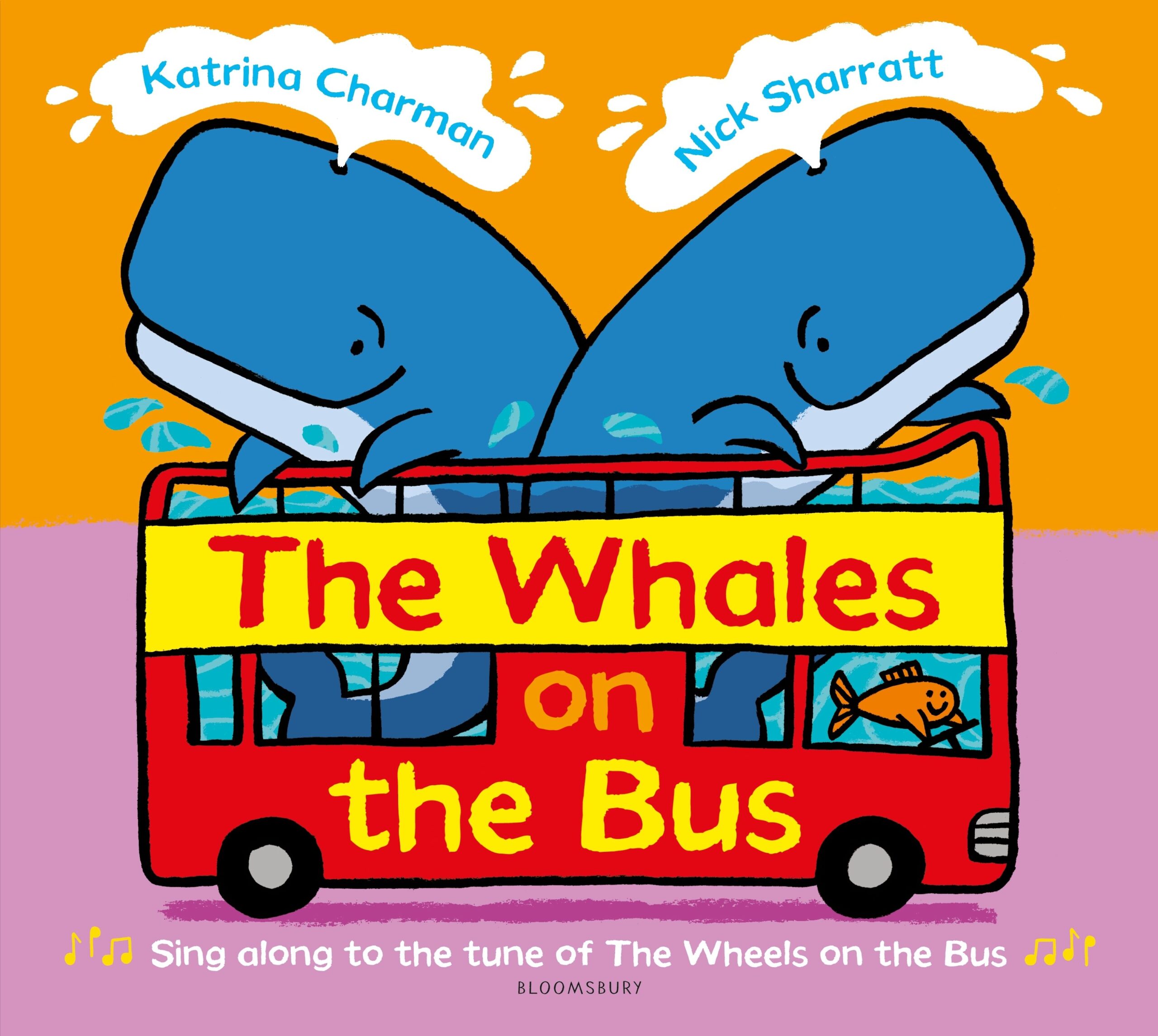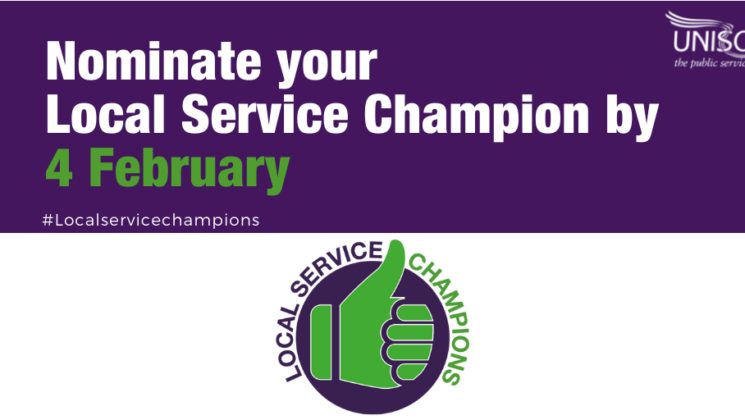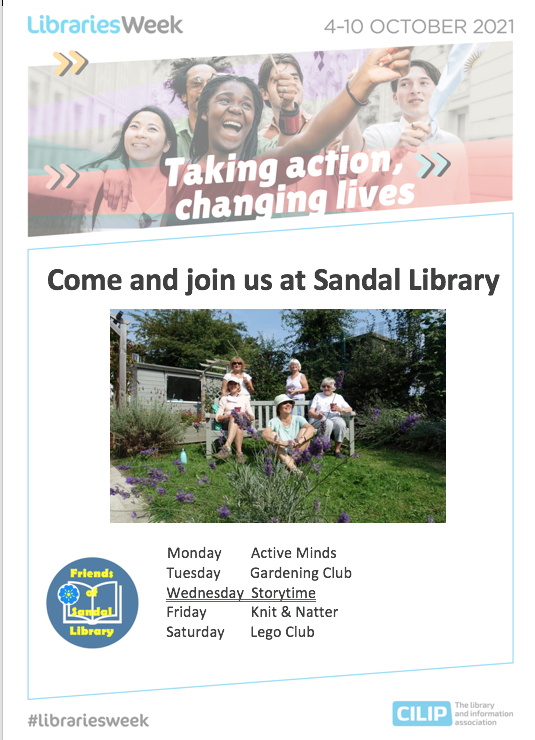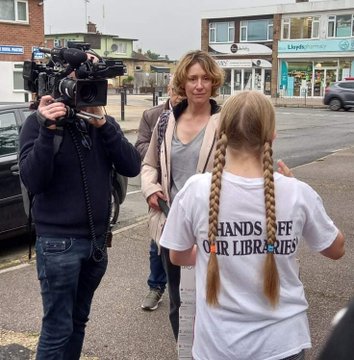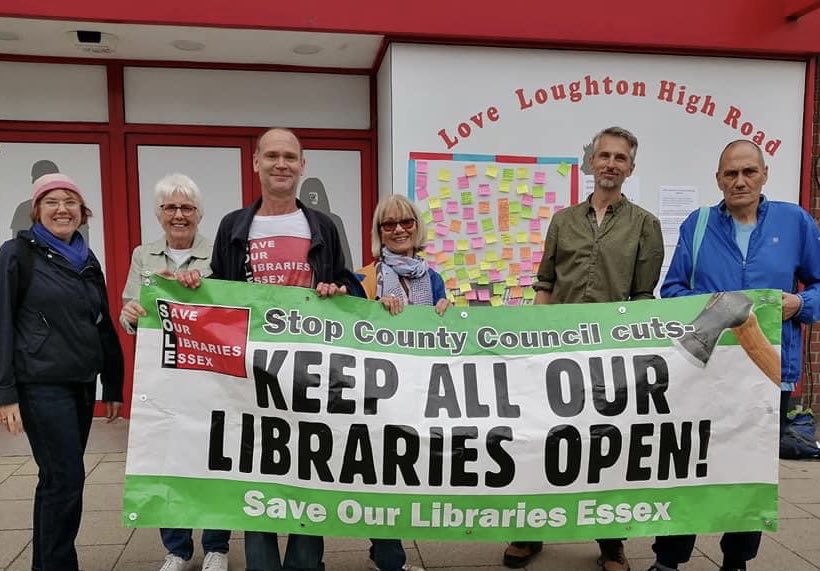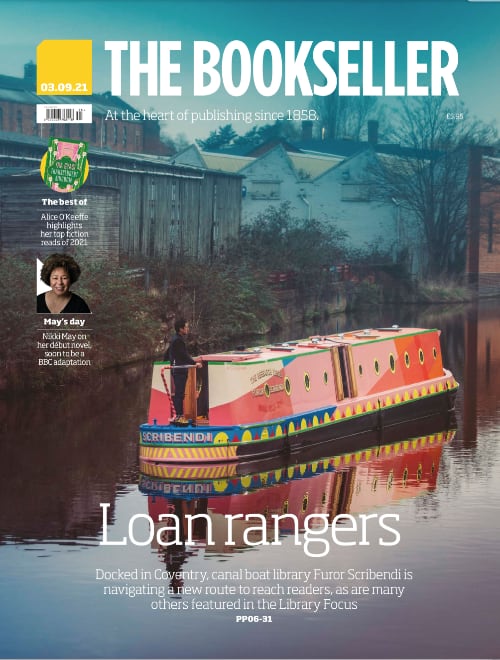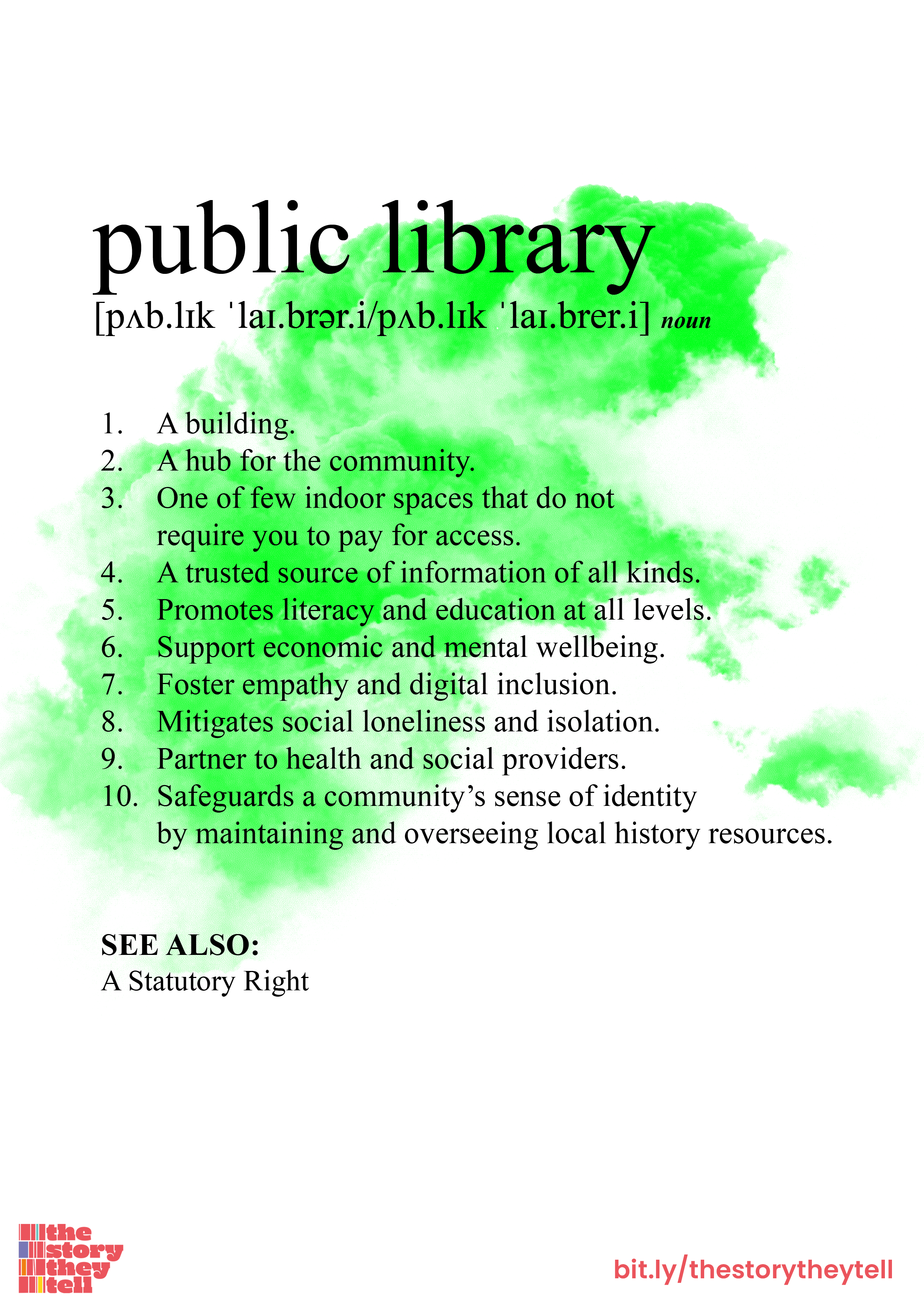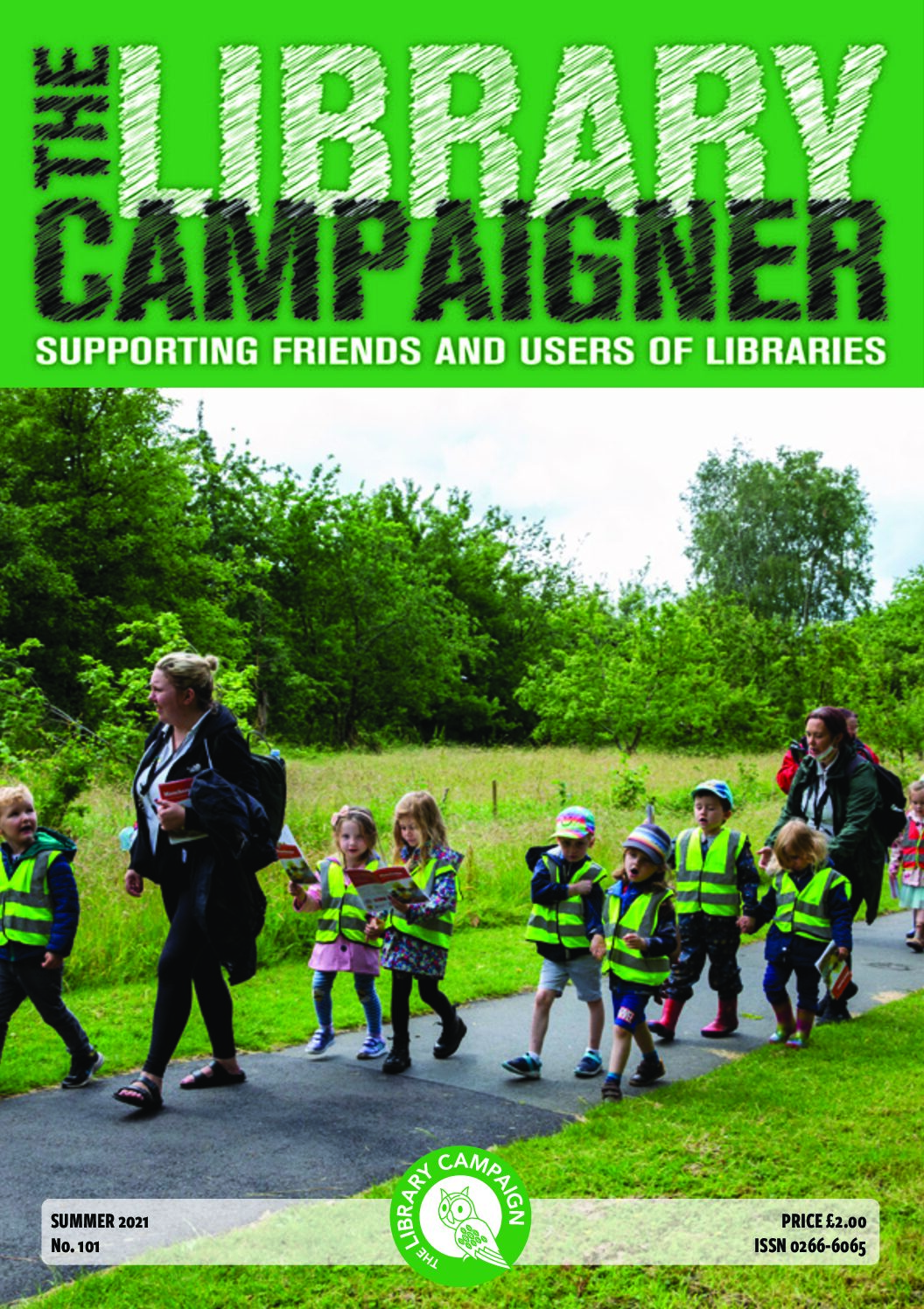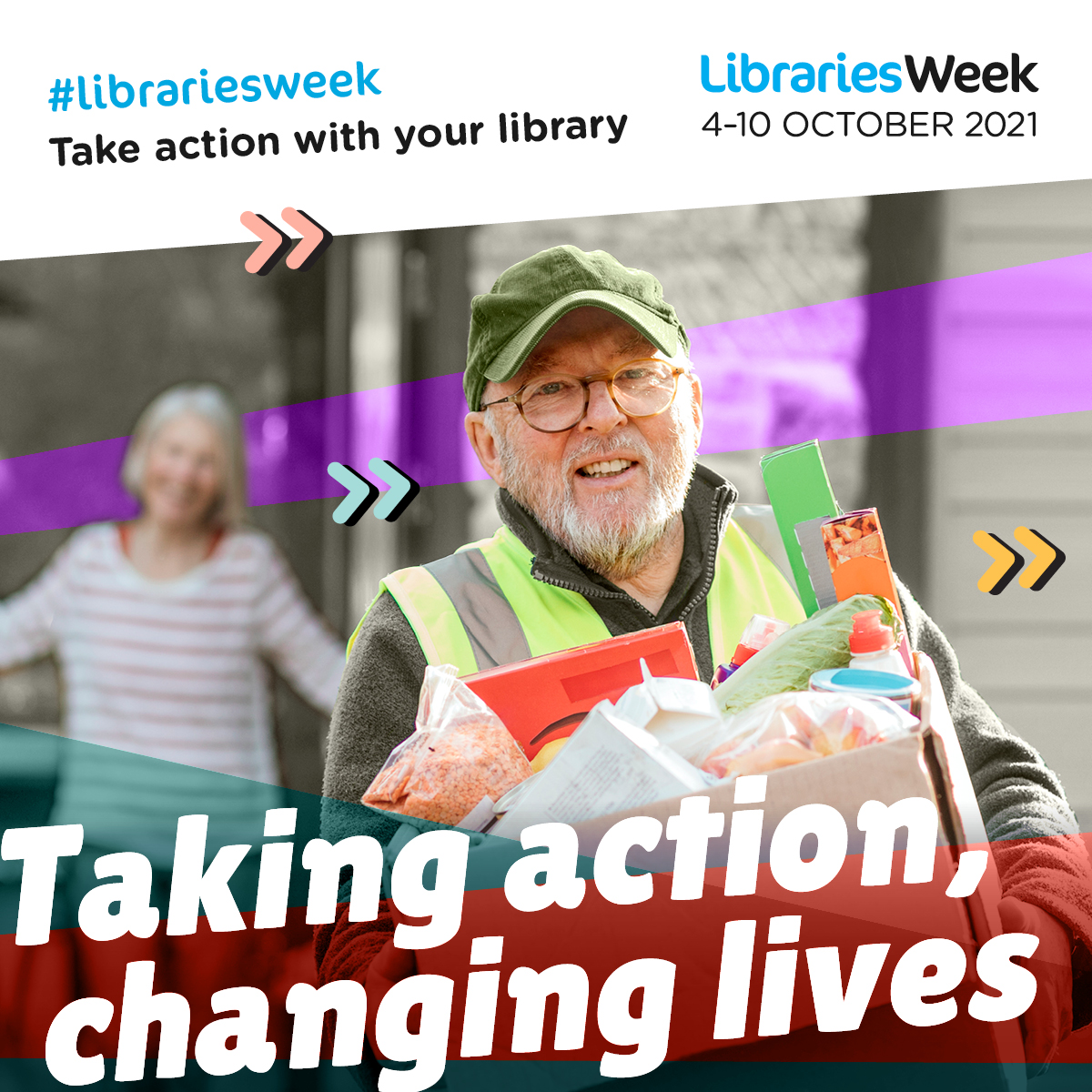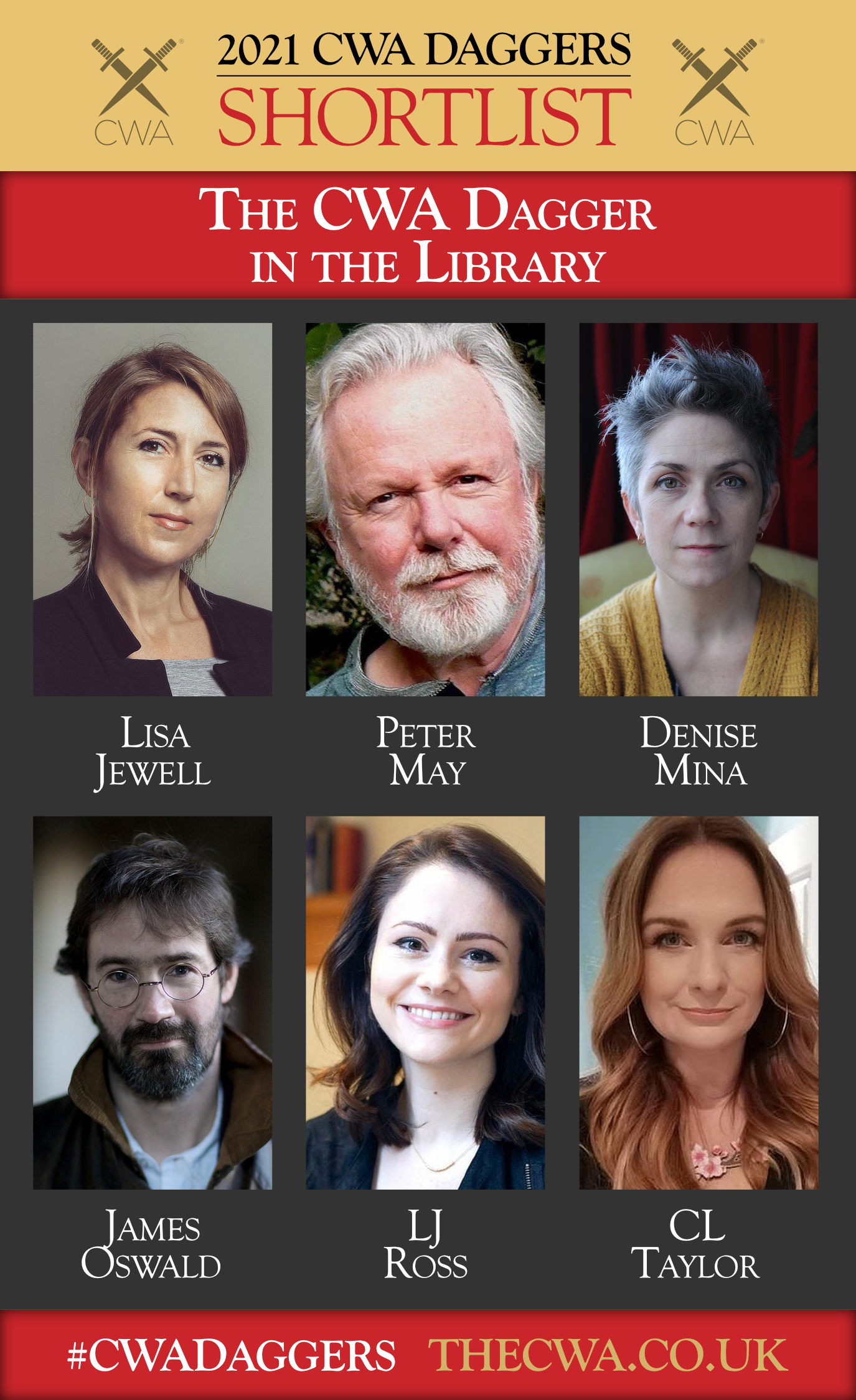Billed as an ‘Opportunity Knocks webinar, this FREE webinar will look at some of the ‘levelling up’ concepts that might be good for libraries.
Thursday 24 March 13:00 – 14:00, online
The UK Shared Prosperity Fund has as its stated goal “to build pride in place and increase life chances across the UK”. This ‘placed based approach’, with its focus on enriching the lives of those who face disadvantage, is core to the work of public libraries. It could be a huge opportunity for library services, and for local
authorities to put libraries at the heart of their bids. This webinar is a chance to understand the process, and how library services could be a core part of local investment plans.
Speakers:
• Helen Barnard, Pro-Bono Economics and Joseph Rowntree Foundation
• Andrew Laird, Mutual Ventures
• Library service lead talking about their experience
Book your place here.
Schools and libraries are gearing up for World Book Day on March 3. This is a worldwide celebration aimed specifically at children. (Grown-ups get their own event on April 23 – World Book Night).
Already there is a mass of interesting videos on https://www.youtube.com/worldbookdayuk. And new live digital events are slated for the coming week on February 28, March 2 and March 3. Find them here: https://www.worldbookday.com/events
The WBD website is bursting with ideas and downloadable goodies. So many that is is quite a job to track them down. For anyone thinking of doing anything with children, any age, anytime, a good introduction is
at: https://www.worldbookday.com/resources
Here at TLC, we’d love to see Friends groups making more use of resources like this. Many can be used any time of the year, not just during the designated “Day” or “Week”. Many are particularly good on
activity packs, with ideas for games to play and things to do. Have a look.
For starters we recommend
British Science Week (March 11-20) https://www.britishscienceweek.org
Shakespeare Week (March 21-27) https://www.shakespeareweek.org.uk
How do you turn a solid plank into a damp squib? For one answer, turn to the government’s White Paper on levelling up. This enticing concept, remember, was the major plank of the government’s offer to “left behind” communities that have turned Tory. Enticing, but mysterious…
After long, long delays a White Paper has come out. The main message is there’s no new money. This hasn’t gone down well. Attached to this a thumping great 330+ page report analysing the nation’s many problems. This has been better received. But how can its big ambitions be turned into action?
Libraries should be part of the solution. It won’t be easy, though, to dig out useful ideas from the welter of recycled one-off funds and schemes now on offer.
Luckily, you don’t have to read it all yourself. Libraries Connected invites you to a FREE webinar, 1-2pm, 24 February, where experts will wrestle with questions such as:
• How do the White Paper’s “missions” resonate with the work of libraries?
• Is levelling up only for the north or will it be a set of principles for all areas of the country?
• What funding and development opportunities will there be?
• How can libraries get in on the action including at the regional level?
The speakers are:
· Professor Michael Kenny, Bennett Institute Cambridge
· Philip Clifford, Senior Adviser at LGA (devolution, place-based growth and international policy)
· Paul Clifford, Head of Economic Development, Barnsley Council
The annual BookTrust Storytime Prize has been awarded to The Whales on the Bus (see what they did there?) by Katrina Charman and Nick Sharratt (Bloomsbury).
But this year’s award is different. The shortlist of six books was road-tested not by a judging panel but by families and librarians. All the libraries in England were given a set to read aloud. And 300 also
had a package of games and activities, tailor-made for each book.
It’s all part of a major initiative to get young families into libraries. As a regular habit. And getting parents carers/confident about sharing books and stories.
BookTrust, the children’s reading charity, is re-framing its work to focus on “the families who need more help developing a reading habit”. Its own research shows that only 49% of families in poverty with children aged 0-5 are registered with a public library.
The Storytime programme will be expanded nationwide once the pilot is evaluated. Beth Southard, one of the team who piloted it in Norfolk libraries, said: “We’re really hoping we’ll increase our accessibility for some of the families that have been a bit harder to reach. We’re particularly interested in the idea of creating reading as a habit. “[The families] really enjoyed the content and the fact it’s a whole
package. It’s not just coming for stories and then going home. It feels like there’s a whole thing to unlock with it. That’s had people coming back each week.”
Local mother Savanah said: “We’ve really enjoyed BookTrust Storytime. It’s opened our eyes a little bit too. It doesn’t have to be a big, long, boring book. It can be short and sweet, but a lot of interaction
with colours and pictures and things. “It’s a really positive environment. The library team have been great. As we’ve got to know them, we come to a place where it’s really
comfortable and everyone is happy.”
FEBRUARY 4 is the deadline to nominate a ‘local service champion’ for UNISON’s promotion campaign.
We bet you know at least one in your library service…
UNISON says: ‘Local government has been an easy target for cuts, yet unlike the NHS people have been less likely to defend it.
‘People working in local services during the coronavirus pandemic have gone beyond the call of duty to keep the country going, yet their efforts have often been overlooked.
‘This isn’t right – UNISON aims to raise the profile of these unsung heroes and everything that they do.’
The campaign will end with a national ‘day of celebration’ in June.
Nomination form here: https://www.unison.org.uk/our-campaigns/local-service-champions
Spread the message with: #Localservicechampions
Some libraries are expanding their work into a bold new initiative – encouraging people to talk about loss, dying, death, bereavement, and more. Of course, Friends groups have run events on this theme before. But now it’s part of a whole international movement – peaking this year in Dying Matters Awareness Week (Monday-Sunday, 2-6 May). The Week was founded in 2009 and is now run by Hospice UK. You may like to get involved, or encourage your library to do so, or just find out what’s going on.
Here’s how! Libraries Connected has invited us to a free webinar. Guest speakers from Hospice UK will introduce the 2022 campaign, its grants programme* and the plans for Dying Matters Week. The Week aims ‘to bring awareness to the issues many people face at the end of life, and how we, as a society, can make essential changes’.
There will be a Q & A and a chance to share ideas.
*The Dying Matters Community Grants Programme is open for applications.
Book your place here
We’ve always said that libraries have a unique role as safe public spaces that people trust.
The latest proof of this is pretty spectacular!
New research by IpsosMori rates all the professions you can easily think of, on one crucial factor – do people trust them to tell the truth?
And right at the top are – librarians. They are trusted by 93% of the population. (Well, nurses beat librarians by a single point, but we are happy to give way to them… together, these two even beat doctors in the trust stakes!)
It’s worth noting that ALL the professions line up at the top, from teachers to professors. While it’s no surprise these days to see politicians at the bottom at 19%, with only advertising executives scoring lower.
It’s a massive – and deserved – vote of confidence in our libraries.
And in the professional librarians that make them what they are.
To quote Isobel Hunter of Libraries Connected: “It’s the people who put the libraryness in the libraries.”
Challenging but so worthwhile – libraries have been exploring ways to help people deal with death. Libraries Connected (LC), the chief librarians’ group, is kindly inviting us to join a free webinar on “Finding connections through loss”. This was an Arts Council funded grief project in Devon.
The webinar will share the project’s experience so far, including engaging “community partners”, and work by artists with local communities.
There will be updates on LC’s work with Cruse Bereavement Care on a bereavement café toolkit and on the whole “Death Positive Libraries” project.
Watch it now on youtube: https://www.youtube.com/watch?v=66XI34bvbu0
On Wednesday 10th, we had a Zoom call on all the things you need to know about libraries.
Such as: What has the pandemic done to libraries? How does the digital future look? Do the new ministers talk sense? Is Rishi Sunak’s spending review any use? Where are the latest local trouble spots? What is The Library Campaign doing? And quite a lot more…
With special guest Ian Anstice of Public Libraries News, the unique website that keeps up with all the day-to-day news.
After Ian and Laura Swaffield (Chair of the Library Campaign) had spoken on all that, Andrew Coburn (Campaign Treasurer) gave a whistlestop tour of this website. and then there was time for questions and comments!
The recording of the meeting is now on our Youtube channel – here.
It will take time for the real consequences of Rishi Sunk’s 27 October spending review to emerge. But here’s TLC’s take, so far…
First all-round reaction was surprise and relief. Instead of yet another kick in the teeth, all departments got a modest real terms increase. For local councils, that’s 3% a year extra for the next three years.
This, says the LGA (Local Government Association) means they should be able to keep services at the 2019-20 level at least until 2022-23. That’s something – if you think everything (including adult social care) is fine as it is…
Hopes of getting extra money lie in a confusing welter of special funds. These come from every government department, and can help fund anything from high streets to child welfare, business to education, crime to transport, “decarbonisation” to arts, heritage to health…
All these are awarded after competitive bidding. And public libraries are relevant to every one of them. But only if they have the time and resources and skills to make repeated bids for scores of different pots.
It’s a daft way to run things. It’s a huge waste of council resources. It sets locality against locality. And can it deliver coherent development? Will government departments liaise with each other when they decide who gets grants?
And don’t forget that austerity has seen regular complaints that the governing party favours its own key constituencies.
Apart from these scattered money pots, public libraries ought to benefit from “levelling up”. This is seen as so crucial that the local government department has been re-named the Department for Levelling Up, Housing & Communities.
Nobody yet knows what it really means in practice. Until we see the promised White Paper, we won’t know where the money will go – to life-enhancing work with local people, or the big spectacular projects that politicians like so much?
And we’ll still, it seems, be cursed with the bid-for-everything culture.
The LGA, at least, is starting to object. It says: “The competitive bidding process means that scarce council resources have been diverted at a time when local capacity continues to be stretched by multiple pressures? in local areas.
“We would welcome further steps towards defragmenting all local funding arrangements to help maximise the strength of councils’ local leadership, which was demonstrated so strongly during the pandemic.”
Hear hear!
New culture secretary Nadine Dorries has declared herself a champion of public libraries. “If I have one mission as culture secretary, it’s to open doors for those who need it the most. Libraries are the front line for that effort and I’ll press councils hard to invest in libraries because of the enormous value they provide,” she told the Daily Express on Saturday (9th October).
She added: “I want to thank libraries up and down the country for all they do – something the Daily Express has done a great job of highlighting through its campaign. They are a lifeline to millions of people – particularly during Covid.”
The Library Campaign heartily welcomes these words. Now we await some action. “Pressing councils hard to invest in libraries” has to be seen in the context of 11 years of austerity cuts to council budgets that have seen around 800 libraries closed, or dumped on to volunteers to run. There’s a lot of ground to make up.
For instance… the Tory conference has ended with no clear proposals on “levelling up” – a key plank of government policy, but one that remains shrouded in mist.
The Library Campaign has a word of advice for the government – LIBRARIES ARE KEY TO GENUINE LEVELLING UP.
AND LIBRARIES ARE ALREADY DOING IT – supplying vital literacy skills and IT skills, vast information resources, education for all ages, quiet study and work space, business information and advice.
Libraries are right there already in every community – accessible to all, free to use and uniquely trusted.
Evidence is mounting that “social infrastructure” like this is far more effective in levelling up than multi-billion building projects. And far, far cheaper.
“So much of the policy debate around levelling up in the UK has focused on headline-grabbing projects like HS2, the extension of 4G and 5G networks and upgrades to major roads. “However… their efficacy depends to an important – and often unheralded – degree upon the capacities, health and productivity of the communities and citizens they are designed to connect,” says Cambridge University’s Bennett Institute for Public Policy. For more on this, see page 21 of our latest magazine.
If Nadine Dorries can join up the dots, she will get our support.
The Library Campaign is joining Libraries Week in style, with the launch of our new Instagram presence and we’re hitting the national press with a topical message for Boris Johnson: if you want real levelling up, libraries can deliver far more than multi-billion projects like HS2. And far more cheaply!
Meanwhile, Friends of Sandal Library in Wakefield are supporting the Week where it counts – locally. They are using Libraries Week artwork to boost their message about activities at the library. On Tuesday they are inviting local councillors for tea and (of course!) cake at their gardening club.
If your Friends group is active on social media, Libraries Week is a chance to amplify your messages and photos. Tag your posts with #LibrariesWeek or @librariesweek. If you have a good story to tell about the difference your library makes, make it national news by contributing it to the #ShareTheChange campaign. Find out more at http://librariesweek.org.uk/share-the-change.
There’s plenty more for all to to enjoy via the Libraries Week website (http://librariesweek.org.uk).
They include (Monday 4th, 7pm) a special book event with author Femi Fadugba, talking about his new book The Upper World, a game-changing young adult thriller that defies space and time, in which the library
has a part to play…
On Wednesday, The Reading Agency launches new free, online reading for pleasure game for children, The Reading Adventure.
Each day, organisers CILIP will crowdsource contributions to its #Changing Lives Reading List with books to educate and inspire on a range of topics from anti-racism, LGBTQ+ and disability to mental health, well-being and climate change. Share your book finds and suggestions!
To join in these and many more activities, there’s only one place to go – http://librariesweek.org.uk
And follow The Library Campaign on INSTAGRAM and TWITTER.
Top news programme Newsnight featured public libraries on Thursday. This was part of an examination of what government cuts are doing to local services. It is well overdue! The Newsnight team filmed the campaigners in Essex, on advice from The Library Campaign. Here is a video extract . And here’s another
When a plan for mass closures shocked the whole county in 2019, people quickly came together to fight it.
Within days SOLE – Save Our Libraries Essex – was formed. A major point was that ALL Essex libraries must be saved. There was to be no playing one library against another.
SOLE has run a fantastic campaign, with celebrity endorsements, social media, demonstrations and marches (including one marathon relay visiting all 74 libraries!). Lockdown didn’t stop them.
Taken aback, the council changed tack and promised to keep all libraries open for at least five years… but wanted as many communities as possible to take over running them.
Some campaigns give in at this stage from sheer exhaustion. Not SOLE! So-called “community libraries” are no alternative to the real thing. So SOLE has carried right on.
The council has declined to meet SOLE in a proper public meeting. Now it is mulling a new “strategy”- details unknown. But it starts with two online consultation sessions – no use to the many who are not online, and at times when most online users will be at work or school! So SOLE has got in first, collecting views outside Loughton library and writing its own 10-point plan for libraries. One that makes sense…
SOLE’s 10 points are:-
1. A long term commitment to keep all existing branch libraries open.
2. Commit to every library staying staffed and being maintained directly by Essex County Council.
3. Increase our paid, trained, library staff – libraries must not depend on volunteers.
4. Listen to library users – let’s see real, open consultation on a library strategy.
5. Improve the stock in every local library – let’s reverse the loss of 500,000 books.
6. Restore and extend opening hours including Sunday opening where there is proven demand.
7. Introduce a fines amnesty to build library use back.
8. Protect our existing public library space – don’t sacrifice it to other users and profit.
9. Develop, extend, and promote appropriate activities and services supporting education and culture for all, in our libraries.
10. Publish a local development plan for every library and invest in our library buildings and infrastructure – it’s our future.
To read the full story of SOLE (so far!) in TLC’s magazine no 97 pp
9-10 and no 98 pp 8-12.
The Bookseller, the Bible of the book trade, has published a whole issue focused on libraries – for the first time ever. It includes, of course, a piece by us at TLC.
The online edition is free to read, for ONE WEEK ONLY, starting on Friday September 3rd.
It’s quite a tribute to the goodwill that libraries have garnered during lockdown – and, of course, libraries’ continuing importance to the book world. They create readers from infancy, and encourage a lifelong exploration of books.
A major theme in this special issue is that publishers of e-books rarely grasp this simple idea. Libraries get the blame for a less-than-ideal e-book offer – but it’s publishers’ prices and restrictions that are the real problem.
Plenty more interesting stuff in this limited special issue. Meanwhile TLC’s Campaigner remains Britain’s ONLY public libraries magazine – free all year round on our website, with a print edition for TLC members.
The Story They Tell, set up by graphic designer and library assistant Helen Anderson, tackles two issues in particular – that of library advocacy projects typically running for set periods of time only and the fact that public libraries can mean anything to anyone. It is challenging to convey this quality, yet it is not something to shy away from and as The Story They Tell is a crowdsourced library, it means that it is open to anyone to participate which will hopefully help navigate the multiplicity of roles public libraries have, as a variety of perspectives would be represented. Hopefully, this will go some way to help update perceptions about public libraries and perhaps bridge discrepancies in terms of time & resources at different libraries.
The home page contains the information about the project, the ‘what’, ‘why’ and ‘how’ as it were.
Then there is the ‘Explore the Gallery’ page – here people can explore the different visuals, clicking on for more information (or a story) and they can share and download the posters if they would like. Maybe people working in libraries will want to use the posters, maybe people protesting, maybe book lovers or perhaps people will just visit for inspiration.
Next there is ‘Find your library’ using one of the great projects from Libraries Hacked. Helen was conscious that if the site is trying to get people enthused about using public libraries, then it would be good to be able to direct them to their library. [The Library Campaign will be incorporating Libraries Hacked material on this site shortly.]
The final part is the ‘submit your design’. Here people may be moved to participate in the project and submit their own posters/visuals to the website. It could be something specifically made for this project, it could be something that people have made previously. It could be posters from libraries showcasing their offerings, posters made for protests… Nothing is ruled out and one of the suggestions is that people can use the template on that page to write something about public libraries and that can be posted.
Many Friends groups create excellent work which deserves to be seen widely. Others need ready-made material. The site includes Helen’s posters, based on her research into the things people value about libraries. Help yourself – or add your own creations.
OUT NOW: latest issue of TLC’s Campaigner magazine, the only UK magazine focused on public libraries.
READ IT HERE: https://librarycampaign.com/magazines
TLC MEMBERS exclusively get the print version, delivered to their door – you could too if you become a member. Join here.
IN THIS ISSUE:
– news, including what TLC has been doing
– goodies coming up in September & October
– major libraries project starting soon for disadvantaged kids
– guide to summer reading events for families
– authors of two new books inspired by libraries tell their own stories
– the truth about “levelling up” (it involves libraries)
– nationwide libraries project that eased loneliness during lockdown
– ideas for making libraries a place for kindness
– a feast for crime fans
– why “digital access” in libraries needs serious support.
Filming now are two star-studded book adaptations with a strong literary presence. Make sure you read the books before you see them!
Music icon Harry Styles is joined by Emma Corrin (Diana in The Crown) in My Policeman, based on the 2012 book by Bethan Rogers. The production is for Amazon Prime.
It is billed as ‘an exquisitely told tragic tale of thwarted love’. And it has a fascinating literary background.
In 1950s Brighton, Marion and Patrick both love Tom. Tom, their policeman, is gay – and it is safer for him to marry Marion. The two lovers must share him until…
The story opens in the late 1990s. Patrick has had a stroke, and has moved in with Tom and Marion. Gina McKee, Linus Roache and Rupert Everett have been cast as older versions of the three.
The plot mirrors the real-life relationship between writer EM Forster and a married policeman. Like Marion, the policeman’s wife May also cared for Forster when he moved in after his final stroke in 1970.
Meanwhile London is the setting for an ITV four-parter based on Our House by Louise Candlish. This literary thriller won Book of the Year in the Crime and Thriller category at the British Book Awards2019.
It also has an impressive cast including Martin Compston, Tuppence Middleton, Rupert Penry-Jones and Weruche Opia (a BAFTA nominee for her role in TV sensation I May Destroy You).
The story starts when Fiona arrives home one day to find strangers moving into her house, and all her possessions gone. More flashbacks to the past, as she ‘gradually unravels unexpected secrets and shocking revelations, culminating in a nail-biting finale,’ ITV promises.
Not many of us really know, for obvious reasons. But we all hope that libraries will be open, and will be working hard to encourage people back through their doors.
That’s where Friends groups could really help.
Here’s one idea. TLC is calling on Friends to back National Libraries Week, October 4-10. The week is a regular October fixture, cunningly timed for the period when councils are starting to think hard about
their next year’s budget…
This year’s theme is “Taking action, changing lives”, to emphasise libraries’ role in running activities and getting people together. A good message post-lockdown.
The Libraries Week website is full of useful advice, plus graphics for social media and four different posters – some of which have space to fill in your own messages and give them a national gloss. Some members have told us they would welcome the chance to show their activities have national relevance.
Nearer the time there will be a national publicity campaign by the organisers, the librarians’ association CILIP.
This year, for the first time, TLC will also run a national campaign with press releases and social media. The exact content will be topical, so the details are yet to be worked out. But we’ll certainly be saying that libraries need Friends…
So it’s not too soon to start thinking what local groups might do at local level. And to send us your ideas about what we can do for you (email thelibrarycampaign@gmail.com).
We know one group that is planning an event for local councillors and the council’s decision-makers. Great idea! Another group will use the posters to highlight its regular monthly author talk.
What could your group do? And how can we help get your news out to the national press? Let us know!
Crime books – from cosy to noir – are always a hit in public libraries. And the annual Dagger awards from the Crime Writers’ Association are a great way to find new authors. This year, lockdown has brought some rare good news. The awards gala evening will be online instead of being held at an exclusive event. That means YOU can attend – if you are quick enough. Tickets have just been made available – free, but in limited numbers. To book a place, visit: http://bit.ly/cwadaggers2021. The gala will be on 1 July, from 7.30pm.
Awards are made in categories to suit all tastes – including historical, non-fiction, short stories and crime in translation. Our favourite, of course, in the Dagger in the Library. This is chosen by librarians. It honours an author’s whole body of work, their support for libraries and the role of library users’ choices in developing the genre.
This year’s shortlisted authors are: C L Taylor, Peter May, Lisa Jewell, James Oswald, Denise Mina and LJ Ross.
The evening will be compered by book reviewer and writer Barry Forshaw, a leading expert on crime fiction. Guest speaker is Abir Mukherjee, bestselling author of the Sam Wyndham series, set in Raj era India. Abir has won two Historical Daggers. Queen of crime Martina Cole will also feature, as the recipient of the 2021 Diamond Dagger for lifetime achievement, the highest honour in British crime writing.
PLUS…
You can feast on a wealth of blogs celebrating June’s Crime Reading Month at
https://crimereadingmonth.co.uk/blog
